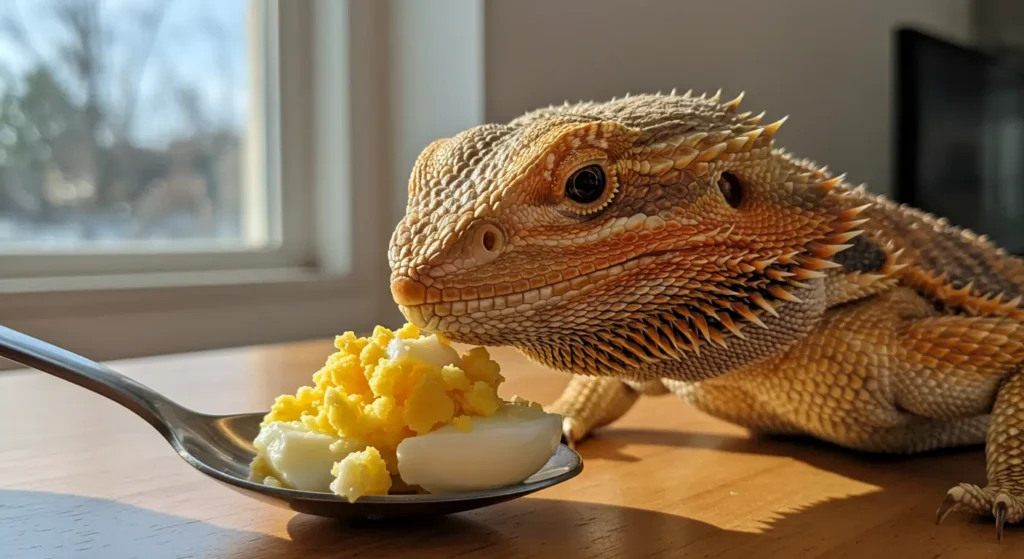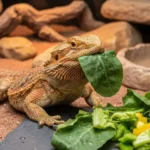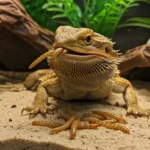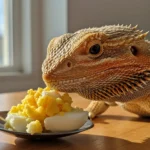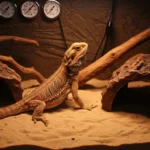Feeding your bearded dragon a balanced and varied diet is essential for its health. Insects and leafy greens usually form the core of their meals. But many owners ask, can bearded dragons eat hard boiled eggs?
It’s a great question. Eggs are rich in protein and nutrients, but not everything healthy for humans is safe for reptiles. That’s why it’s important to understand how eggs fit into a reptile’s nutritional needs.
In this guide, you’ll get expert advice on whether hard boiled eggs are safe, how often they can be given, and the best way to prepare them. Whether you’re new to reptile care or a seasoned keeper, this article will help you make informed choices for your bearded dragon.
Let’s dive in.
Can Bearded Dragons Eat Hard Boiled Eggs? The Facts You Need to Know
Bearded dragons can eat a wide range of foods, but not everything is equally safe. Eggs are rich in protein and nutrients, which makes many owners wonder if they’re a suitable option. This section clears up the confusion with expert-backed facts.
Are Eggs Safe for Bearded Dragons?
Eggs can be safe for bearded dragons when fed occasionally and in small portions. They contain helpful nutrients like protein, vitamin B12, and iron. But they should never become a regular part of your dragon’s diet. Feeding eggs too often can throw off their nutritional balance.
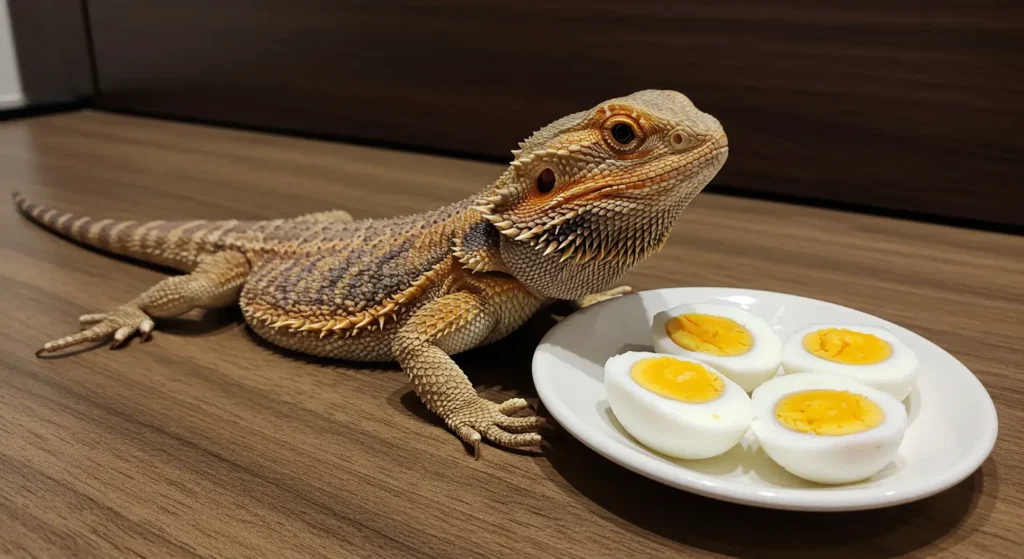
Why Hard Boiled Eggs Are Different from Raw or Scrambled
Hard boiled eggs are the safest option if you’re considering feeding eggs to your bearded dragon. Boiling eliminates bacteria like salmonella that raw eggs may carry. Scrambled eggs might seem fine, but they’re often cooked with oil, butter, or seasonings that are harmful to reptiles. Always go with plain, boiled, and fully cooked eggs.
How Often Can Bearded Dragons Eat Hard Boiled Eggs?
Hard boiled eggs should only be offered once every few weeks. Bearded dragons don’t need high amounts of animal protein, especially from non-insect sources. Feeding eggs too often can lead to health problems like obesity or organ strain. Limit egg portions to no more than once or twice per month.
Age and Health Considerations When Feeding Eggs
Younger bearded dragons that are still growing may benefit slightly more from occasional egg due to their higher protein needs. However, adult and older dragons require less protein and are more prone to health issues from excess. Always consider your dragon’s age, size, and activity level before offering eggs.
Nutritional Value of Hard Boiled Eggs for Reptiles
Hard boiled eggs are packed with nutrients, but that doesn’t automatically mean they belong in a reptile’s diet. Understanding what they provide—and what they lack—helps you make informed decisions about when and how to use them as a supplement.
Protein Content and Its Role in a Bearded Dragon’s Diet
Protein supports muscle growth, tissue repair, and overall development. Eggs contain high-quality protein, but bearded dragons typically get what they need from insects. Feeding additional protein sources like eggs can overwhelm their system if not managed carefully. Stick with insects as the main protein source and use eggs only as a rare supplement.
Vitamins and Minerals Found in Eggs
Eggs contain useful nutrients like vitamin B12, selenium, and small amounts of vitamins A, D, and E. These help with metabolic function, immunity, and bone strength. However, eggs lack the fiber and hydration that come from leafy greens and gut-loaded insects. They should never replace your dragon’s core diet.
Calcium-Phosphorus Ratio: What You Must Watch For
Bearded dragons need a diet with a calcium-to-phosphorus ratio close to 2:1. Eggs contain more phosphorus than calcium, which can interfere with calcium absorption and contribute to metabolic bone disease if overfed. This is one of the biggest reasons why eggs should be given only in small, infrequent amounts.
Comparing Eggs to Other Protein Sources (Insects, Worms, etc.)
Insects like crickets, dubia roaches, and black soldier fly larvae are more natural and suitable protein sources for bearded dragons. They not only offer better nutritional value but also stimulate your pet’s natural hunting behavior. Eggs don’t provide that interaction or variety, which is why they should be treated more as a rare treat than a reliable protein source.
Better Protein Alternatives to Eggs for Bearded Dragons
While hard boiled eggs can offer some benefits, they shouldn’t be your bearded dragon’s go-to protein source. There are far better options that align more closely with what these reptiles eat in the wild. This section looks at those alternatives and explains how to make smarter choices for your dragon’s long-term health.
Live Insects: Crickets, Dubia Roaches, and Mealworms
Live insects are the most natural and beneficial protein sources for bearded dragons. Crickets and dubia roaches are excellent daily staples. They’re rich in protein, easy to digest, and support natural hunting behavior. Mealworms can be used occasionally, though they’re a bit harder to digest due to their tough exoskeleton. When gut-loaded and dusted with calcium, these insects provide complete nutrition in a form your dragon’s body is built to handle.
Plant-Based Proteins: Are They a Good Idea?
Some owners consider plant-based proteins, such as beans or tofu, as alternatives. However, these foods aren’t suitable for bearded dragons. Their digestive systems aren’t built to process legumes or processed soy. These options often contain anti-nutrients or imbalanced mineral profiles that can harm your dragon over time. Stick with whole insects and occasional animal-based treats instead.
Occasional Treats vs. Core Diet: Where Eggs Fit In
Hard boiled eggs should be considered a rare treat, not a staple. The core of your bearded dragon’s diet should include gut-loaded insects, calcium-rich greens, and a small amount of fruit. Eggs can be used once or twice a month, especially when you’re out of feeders or want to provide a protein boost. They should never replace live food or become a regular part of your dragon’s meal plan.
What Vets Recommend for Long-Term Health
Most reptile veterinarians advise against frequent egg feeding. Instead, they recommend a diet that mirrors what bearded dragons eat in the wild—live insects, leafy greens, and occasional soft fruits. They also emphasize the importance of calcium and UVB exposure to support bone health. When in doubt, always follow vet-approved feeding guidelines and avoid experimenting with unproven foods.
Can Bearded Dragons Eat Hard Boiled Eggs? Final Thoughts from Experts
We’ve covered the benefits, risks, and proper feeding practices for hard boiled eggs. But is this food really worth adding to your dragon’s menu? In this final section, we’ll summarize when eggs are appropriate and when they’re best avoided.
When Eggs Are a Good Choice — And When They’re Not
Eggs can be a useful option in specific situations—like when feeder insects aren’t available or your dragon needs a short-term protein boost. They’re also helpful for underweight dragons in recovery, under a vet’s guidance. However, they’re not suitable for routine feeding. Over time, too much protein can lead to health problems, especially in adult or senior dragons.
Signs Your Bearded Dragon Isn’t Tolerating Eggs Well
Watch for signs like lethargy, bloating, loose stools, or lack of appetite after feeding eggs. These may indicate that your dragon’s digestive system is reacting poorly. If any symptoms last more than a day or two, stop feeding eggs immediately and consult a reptile vet. Not all dragons tolerate the same foods equally.
Consult a Reptile Vet Before Making Diet Changes
If you’re thinking of adding something new to your dragon’s diet—especially an uncommon food like eggs—speak with a qualified reptile veterinarian. They can assess your pet’s age, weight, and health needs, and offer feeding plans that prevent future problems. A quick consultation can make a big difference in your dragon’s long-term wellbeing.
Summary: Balancing Safety, Nutrition, and Variety
Hard boiled eggs can be safe for bearded dragons in small amounts, but they’re far from essential. The best approach is a balanced diet built on live insects and fresh greens, with occasional treats used responsibly. Eggs may have a place, but they should never take priority over foods that meet your dragon’s core nutritional needs.
Conclusion
So, can bearded dragons eat hard boiled eggs? Yes—but only in moderation and with proper preparation. While eggs offer protein and a few helpful nutrients, they’re not a natural or necessary part of your dragon’s core diet. Live insects and leafy greens should always come first, offering the balanced nutrition your pet needs to stay healthy and active.
If you do choose to offer eggs, keep portions small, serve them plain and fully cooked, and don’t rely on them too often. Pay close attention to how your dragon responds, and always talk to a reptile vet before making any major diet changes.
At the end of the day, a healthy bearded dragon is one that eats like it would in the wild—diverse, balanced, and never overfed on treats. Use eggs wisely, and you’ll be giving your pet variety without compromising their long-term health.

